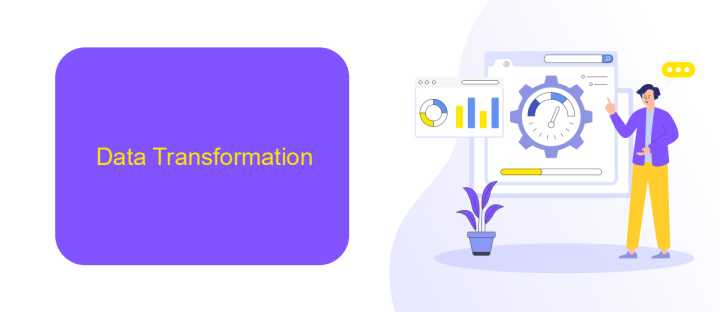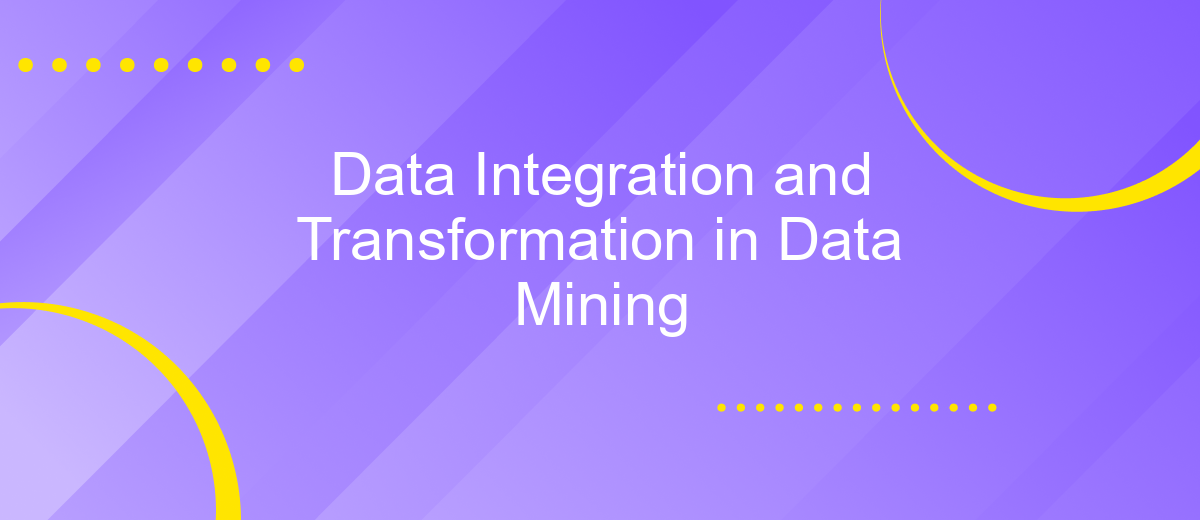Data Integration and Transformation in Data Mining
Data integration and transformation are critical processes in data mining, enabling the consolidation of data from diverse sources and its conversion into a consistent format. These steps are essential for ensuring data quality and enhancing the accuracy of analytical models. This article explores the methodologies, tools, and best practices for effective data integration and transformation in the context of data mining.
Data Integration
Data integration is a critical process in data mining that involves combining data from multiple sources to provide a unified view. This process ensures that data is accurate, consistent, and usable for analysis. Effective data integration can significantly enhance the quality of insights derived from data mining activities.
- Data Cleaning: Removing inconsistencies and errors from data.
- Data Transformation: Converting data into a suitable format for analysis.
- Data Loading: Importing data into a central repository.
- Data Matching: Identifying and merging duplicate records.
- Data Consolidation: Aggregating data from different sources.
Utilizing tools like ApiX-Drive can streamline the data integration process. ApiX-Drive offers automated workflows that connect various data sources, ensuring seamless data transfer and synchronization. By leveraging such services, organizations can reduce manual effort, minimize errors, and accelerate their data integration efforts, ultimately leading to more reliable and timely insights.
Data Transformation

Data transformation is a crucial step in the data mining process that involves converting data into a suitable format for analysis. This process includes various techniques such as normalization, aggregation, and encoding, which help in enhancing the quality and consistency of the data. By transforming data, organizations can ensure that it is clean, accurate, and ready for further analysis, leading to more reliable and insightful results.
One of the tools that can facilitate data transformation is ApiX-Drive, a service that automates data integration and transformation processes. ApiX-Drive allows users to easily connect different data sources, perform necessary transformations, and ensure seamless data flow across various platforms. By leveraging such tools, businesses can save time and resources, and focus more on deriving valuable insights from their data rather than dealing with the complexities of data preparation.
Data Cleaning

Data cleaning is a crucial step in data integration and transformation processes, ensuring that the dataset is accurate, consistent, and free from errors. This process involves identifying and rectifying errors, inconsistencies, and missing values in the data, which can significantly impact the quality of data analysis and mining.
- Identify and remove duplicate records.
- Handle missing values through imputation or deletion.
- Correct structural errors, such as typos or inconsistent formats.
- Standardize data to ensure consistency across datasets.
- Validate data against predefined rules or standards.
Effective data cleaning can be facilitated by using automated tools and services such as ApiX-Drive, which streamline the process of data integration and ensure that data from various sources is clean and ready for analysis. By leveraging such tools, organizations can save time and resources while maintaining high data quality, ultimately leading to more reliable and insightful data mining outcomes.
Data Normalization

Data normalization is a crucial step in data integration and transformation processes within data mining. It involves adjusting the values measured on different scales to a common scale, often between 0 and 1. This ensures that no single variable dominates the analysis due to its scale, enabling more accurate and meaningful comparisons.
Normalization is essential when dealing with heterogeneous data sources, as it standardizes the dataset and reduces redundancy. This process enhances the performance of machine learning algorithms by ensuring uniformity in the input data. By normalizing data, we can improve the efficiency and effectiveness of data mining processes.
- Min-Max Normalization: Adjusts the data to a fixed range, usually [0, 1].
- Z-Score Normalization: Converts data to a distribution with a mean of 0 and a standard deviation of 1.
- Decimal Scaling: Normalizes by shifting the decimal point of values.
Tools like ApiX-Drive can automate the normalization process, integrating data from various sources and applying the necessary transformations. This not only saves time but also ensures consistency and accuracy in the data preparation phase, which is vital for successful data mining outcomes.
- Automate the work of an online store or landing
- Empower through integration
- Don't spend money on programmers and integrators
- Save time by automating routine tasks
Data Reduction
Data reduction is a crucial step in data mining that focuses on reducing the volume of data while maintaining its integrity and relevance. This process involves various techniques such as dimensionality reduction, numerosity reduction, and data compression. Dimensionality reduction techniques like Principal Component Analysis (PCA) and Linear Discriminant Analysis (LDA) help in reducing the number of random variables under consideration. Numerosity reduction methods, including clustering, sampling, and aggregation, aim to reduce the data volume by representing the data in a more compact form without significant loss of information.
Effective data reduction not only enhances the efficiency of data mining algorithms but also improves the overall performance of data analysis. Tools and services like ApiX-Drive can play a vital role in this process by automating data integration and transformation tasks. ApiX-Drive allows seamless integration of various data sources and provides functionalities to preprocess and transform data, making it easier to apply data reduction techniques. By leveraging such services, organizations can streamline their data workflows and ensure that only the most relevant and significant data is analyzed.
FAQ
What is data integration in data mining?
What are the common challenges in data integration?
What is data transformation in data mining?
How can automated tools help in data integration and transformation?
Why is data integration and transformation important in data mining?
Time is the most valuable resource in today's business realities. By eliminating the routine from work processes, you will get more opportunities to implement the most daring plans and ideas. Choose – you can continue to waste time, money and nerves on inefficient solutions, or you can use ApiX-Drive, automating work processes and achieving results with minimal investment of money, effort and human resources.


